CHAPTER 2
ディニが初めて日本を訪れたのは、2018年1月。短い休暇のときでした。このときディニは大阪城で偶然ウィチャックに出会いました。その後、二人は絶えず連絡を取り続け、2020年3月にウィチャックはディニに結婚を申し込みました。ディニは一人娘でしたが、家族から離れ遠い異国へ引っ越すことに、迷うことなく「はい」と答えました。
Dini’s first trip to Japan was in January 2018 for a short holiday that ventually led to her meeting Wicak. They kept constant communication even after that, which lead to Wicak asking for Dini’s hand in marriage in March 2020. Dini said yes with no hesitation even though that entailed moving to a faraway country, leaving behind her family where she is an only daughter.
2020年9月、二人はパンデミック禍のインドネシアで結婚。その3か月後、とうとうディニは日本にやってくることになったのです。
They got married in Indonesia during the pandemic in September 2020, and three months afterward, Dini finally arrived in Japan
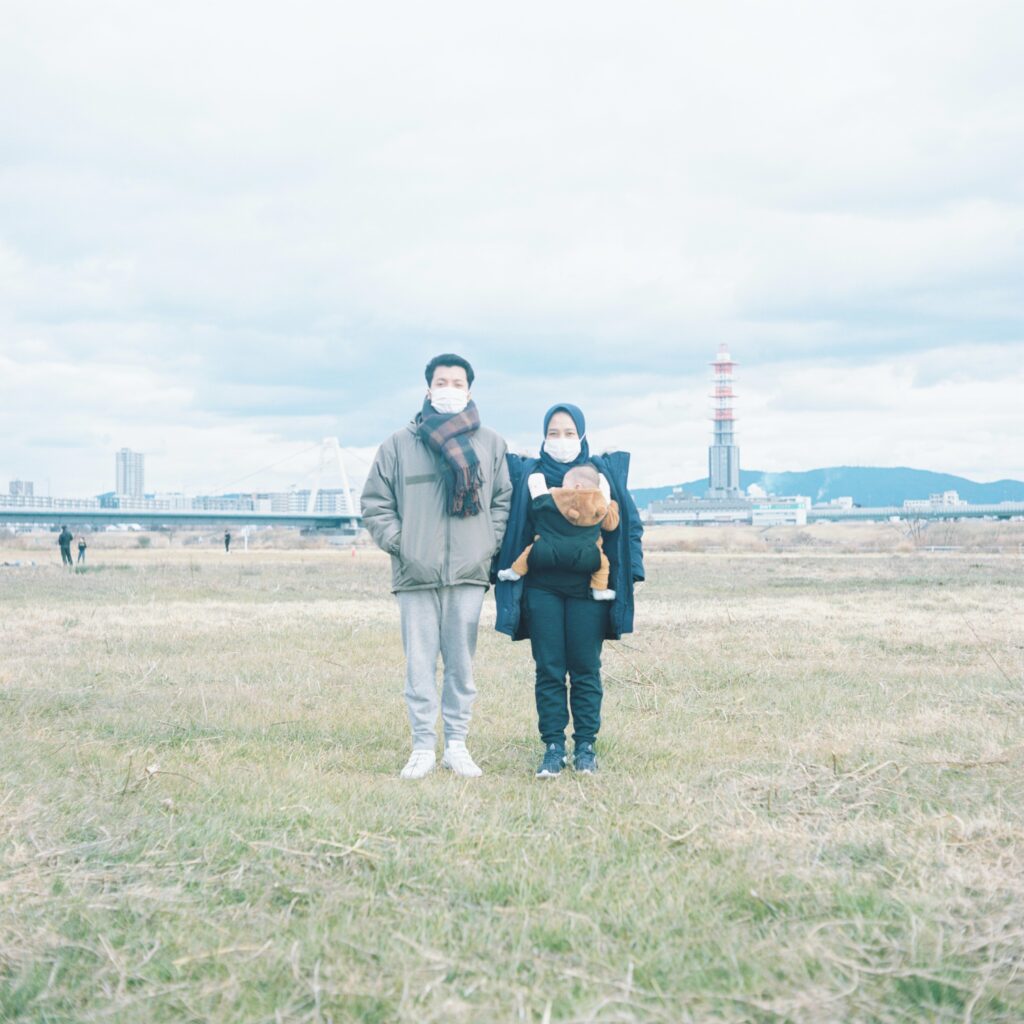
Wicak, Dini, and their son standing on the Yodogawa riverside
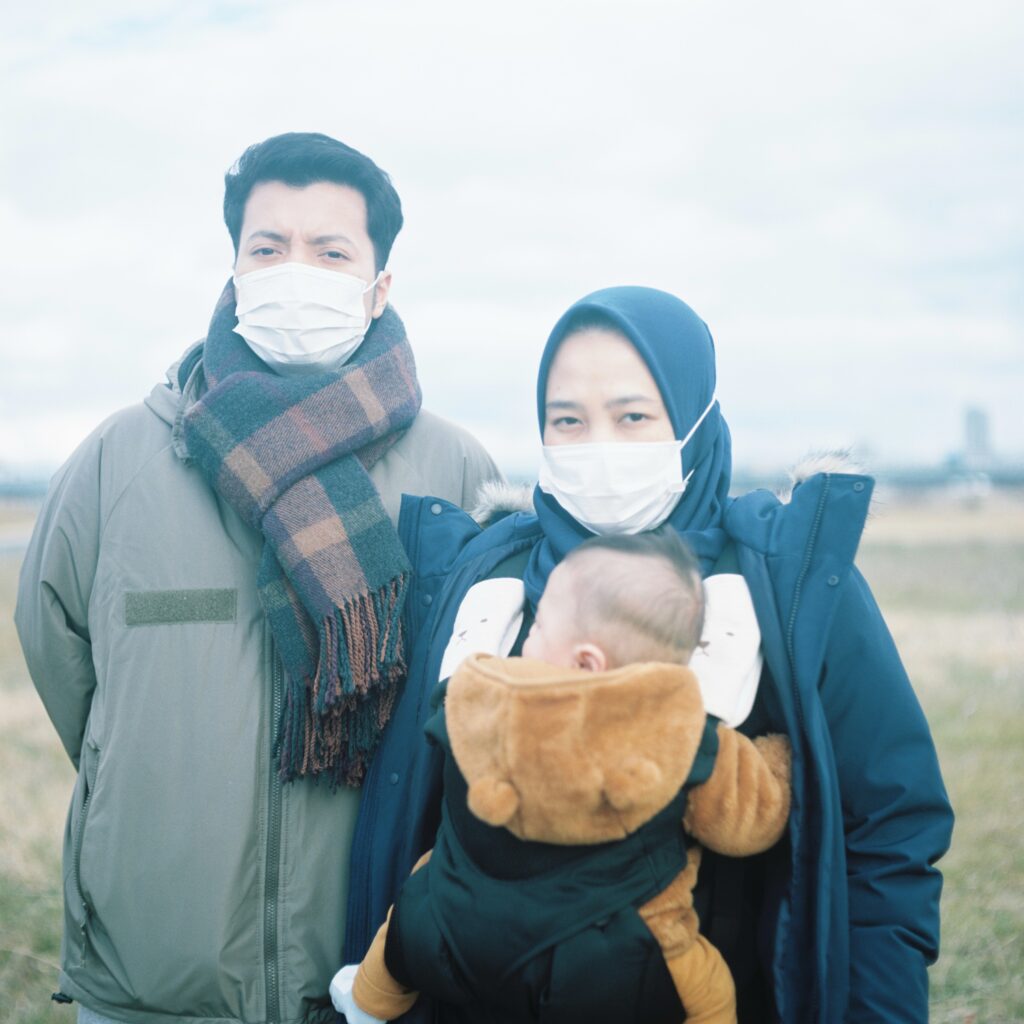
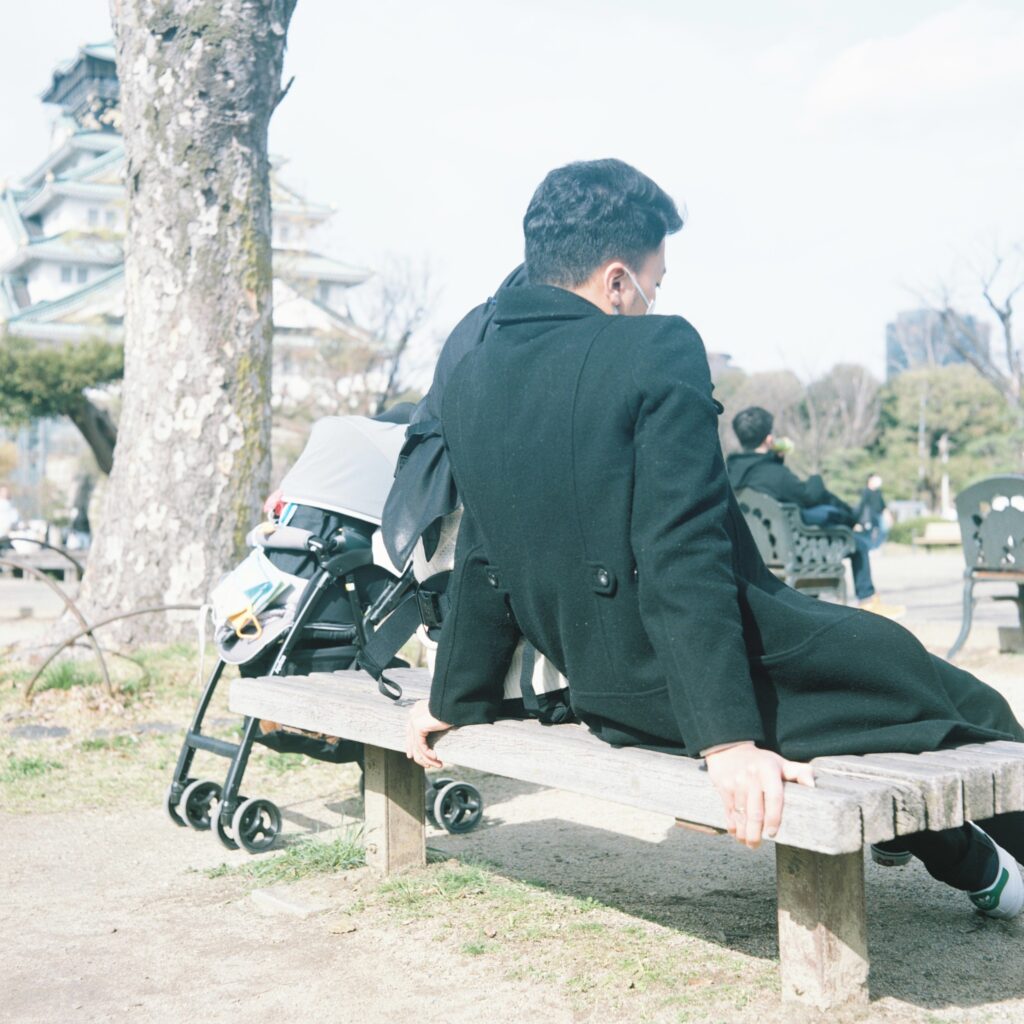
Their family while visiting Osaka Castle
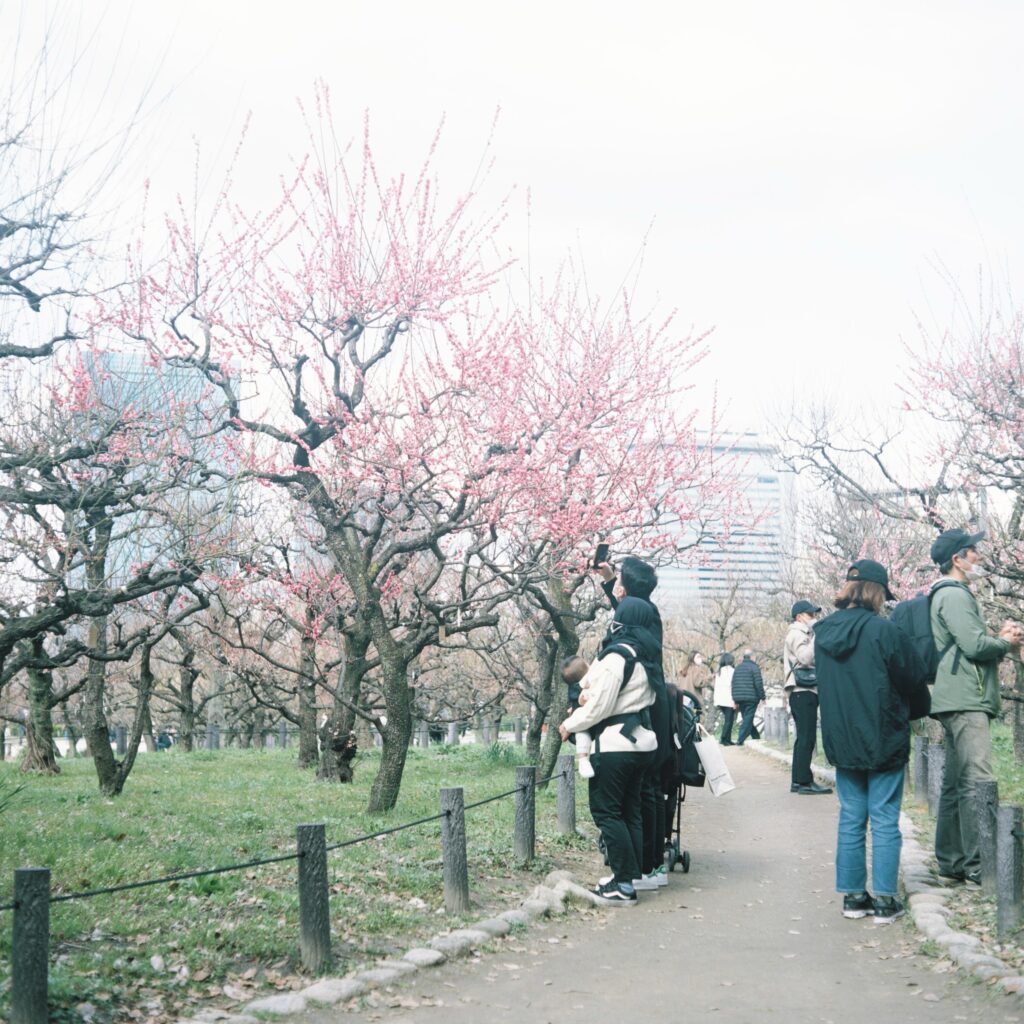
Taking a photo of plum blossoms
ディニはインドネシアの首都ジャカルタにある国立イスラム大学公衆衛生学部の学生でした。ディニは研究を続けたいと強く思っていました。偶然にも彼女の指導教官は日本の大学を卒業していたので、彼女を日本の大学に推薦できると言ってくれましたが、ディニは日本で研究を続けることは難しいと考えていました。日本の漫画やアニメ、文化が大好きな夫とは違い、ディニはドラえもんしか知りませんでした。それでも、ディニは日本的な生活に慣れるのには苦労はしませんでした。
Previously, Dini was a student at the Faculty of Public Health at the State Islamic University Jakarta, Indonesia. During her study, she had a strong will to continue her studies but not in Japan, even though her supervisor graduated from Japan and was willing to give a recommendation. Far from her husband that loves manga, anime, and Japanese culture, Dini only knew Doraemon. Despite that, she did not find it difficult to adapt to a Japanese like lifestyle.
インターネットのおかげでインドネシアにいる家族とは簡単に連絡を取ることができます。しかし、毎日電話をしていても、実際に会うのとは違うと感じいます。彼女が一番不安に思っていることのひとつは、日本にいることでインドネシアの家族と作るはずの思い出や機会を逃していることです。
Through technology, there were also no problems keeping in touch with her family in Indonesia. However, Dini also realized that daily phone calls are no true substitute for physical contact: fear of missing out on moments and memories with her family is still one of her major fears while staying in Japan.
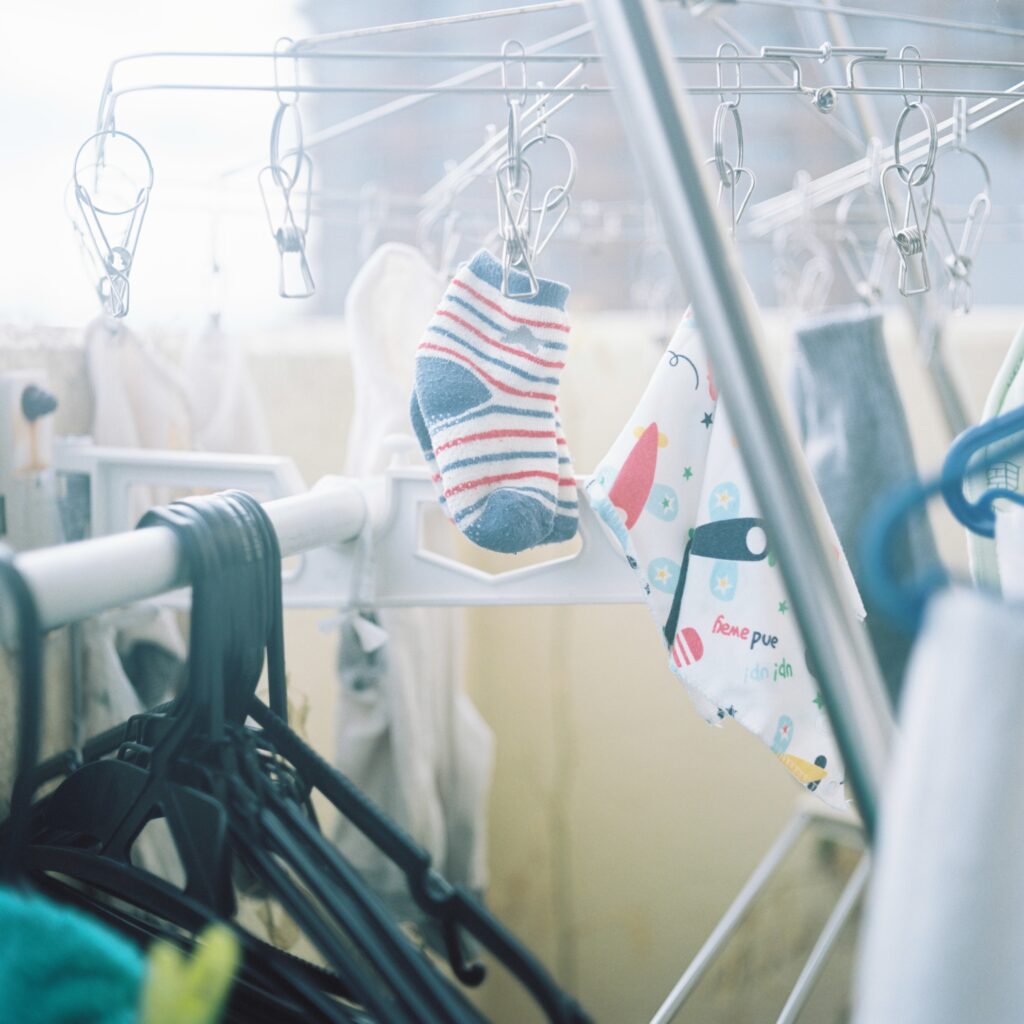
Baby socks being dried
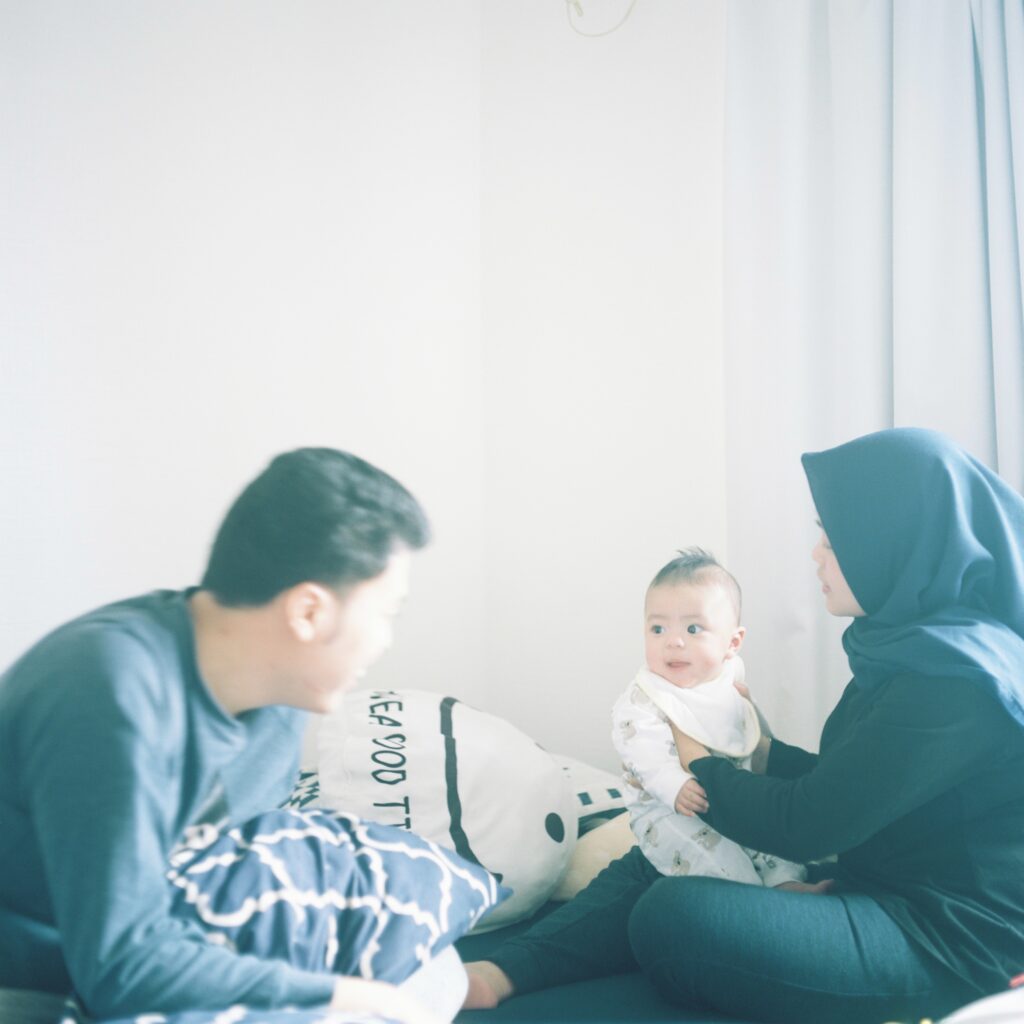
Wicak’s small family in their apartment
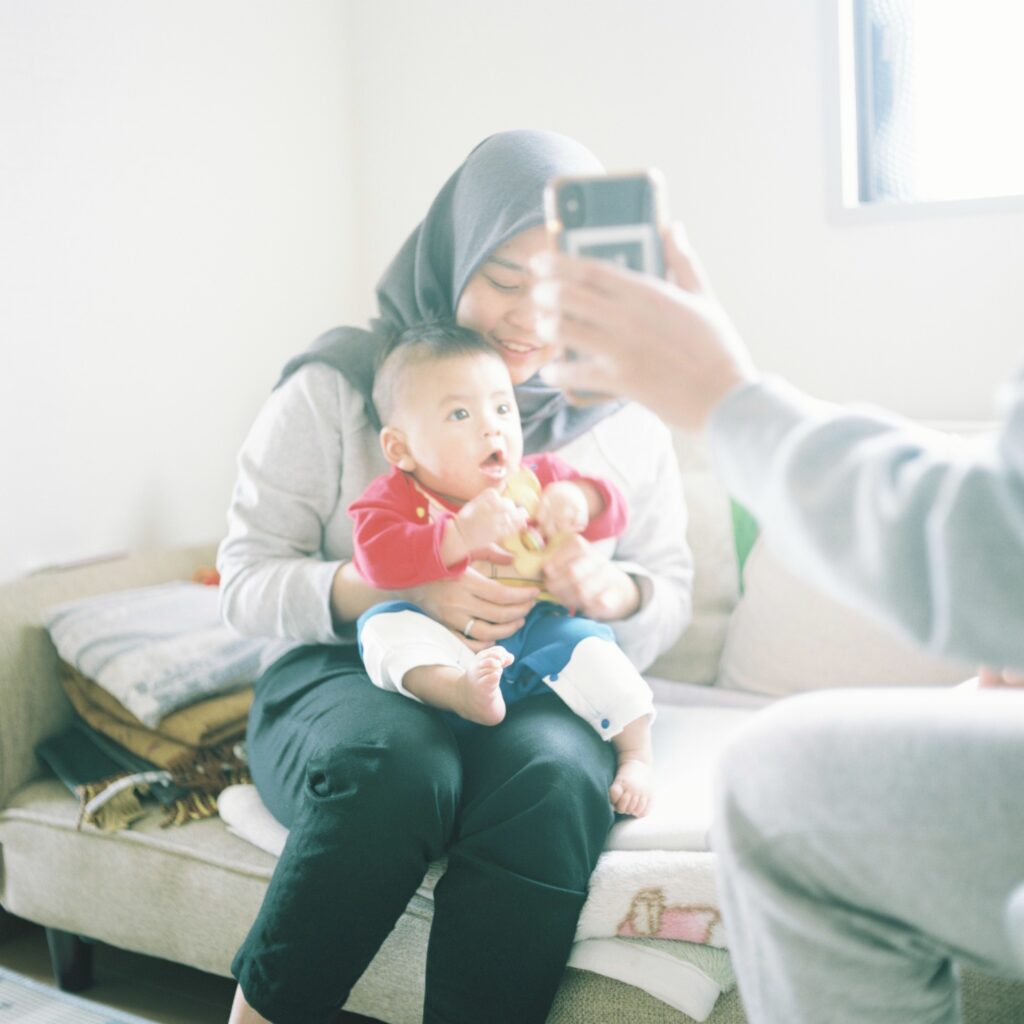
The family video calling with their relatives in Indonesia

Dini checking Japan’s policy during pandemic

Dini and the son
コロナ禍の日本で、ディニはほとんどの時間を息子の世話に費やしました。ウィチャックとディニにとって、息子が生まれてひと月の間はもっとも大変な時期でした。ウィチャックは赤ちゃんとの生活に慣れるために、2か月間仕事を休みました。「わたしだけじゃなく、ウィチャックも苦労していました。彼は私と息子のふたりの世話をしなくてはなりませんでしたから。」とディニはその時を思い返して言いました。
Living in Japan during the pandemic era, Dini spent most of her time taking care of her son. The first month after their son’s delivery was the hardest time for Wicak and Dini. Wicak had to take 2 months off work to adjust to living with a baby. ”It wasn’t just me who was struggling but Wicak too: he had to take care of both the baby and me”, Dini said while remembering those moments.
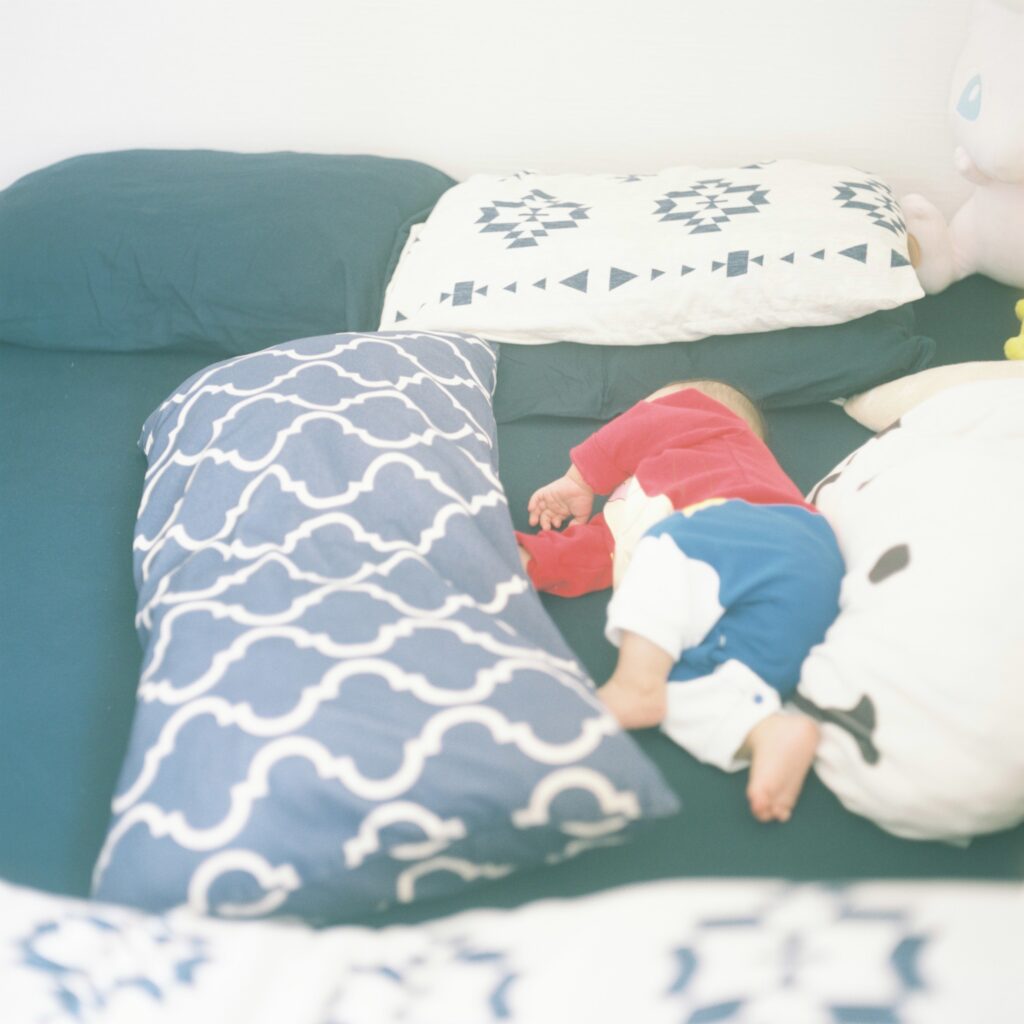
Their son taking a nap on Sunday morning
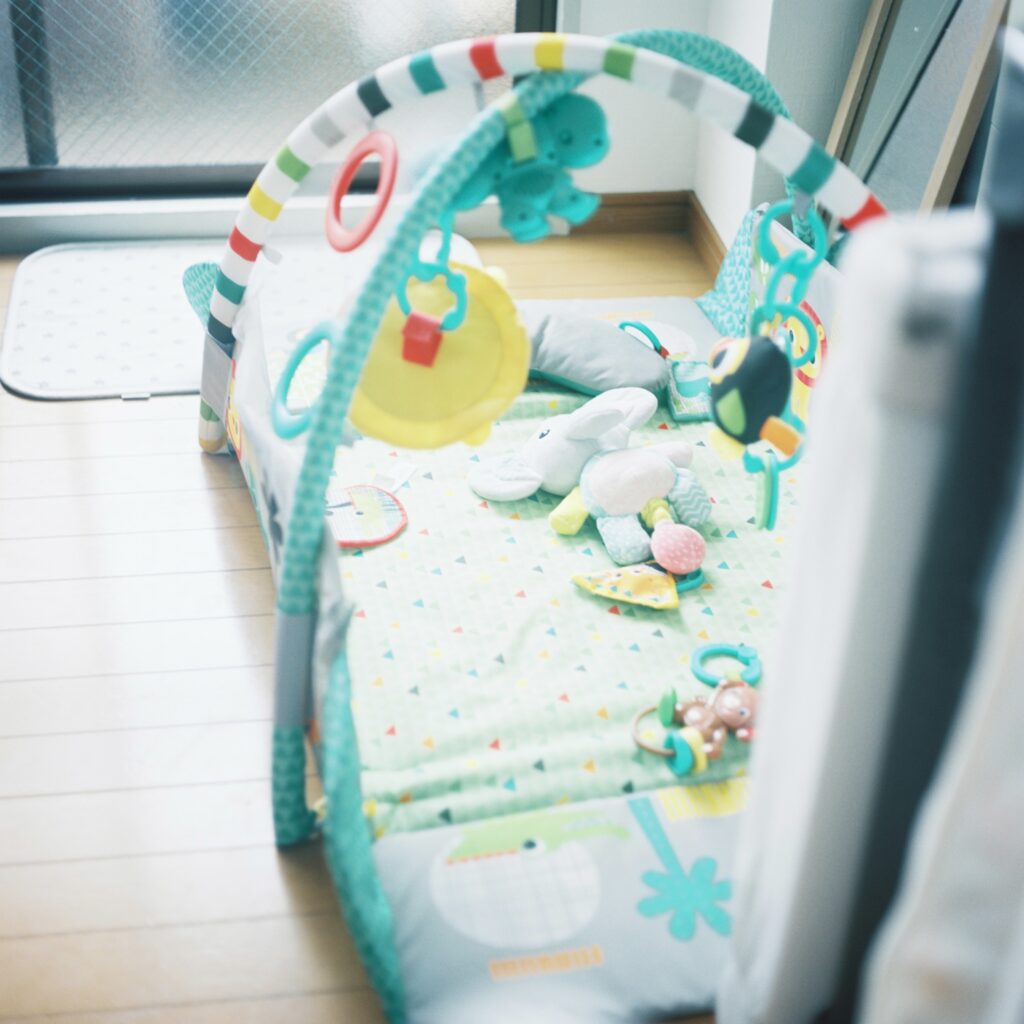
Small playground inside their apartment
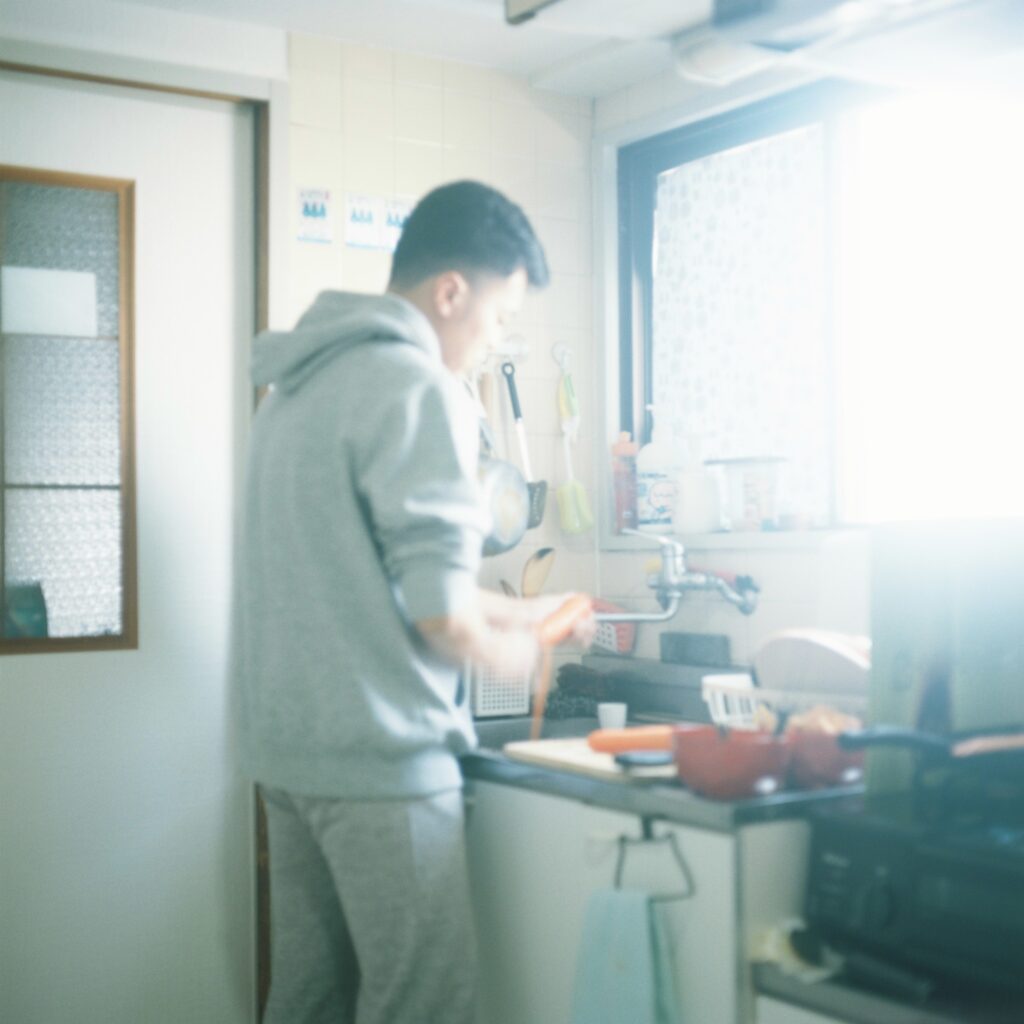
Wicak cooking breakfast
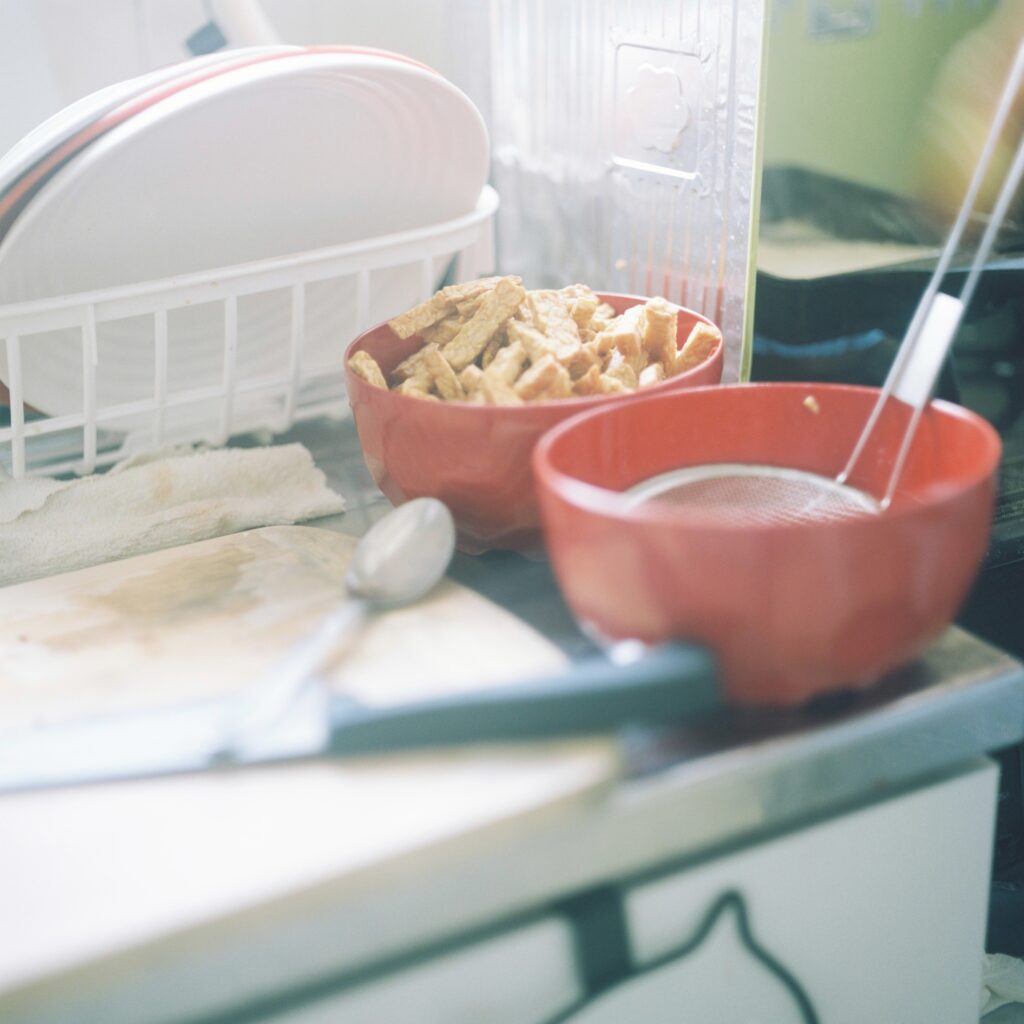
Fried tempe, a ubiquitous food in Indonesia
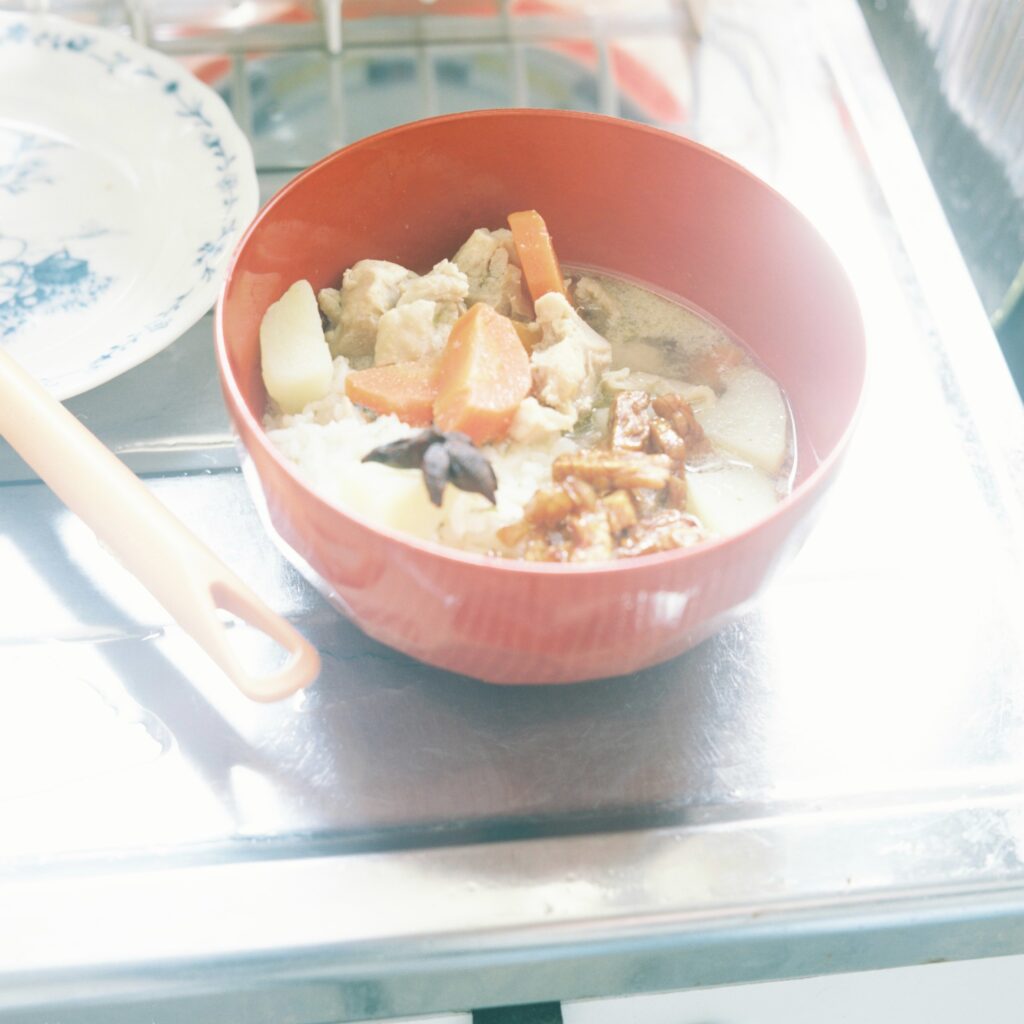
Wicak’s hometown dish, made by himself
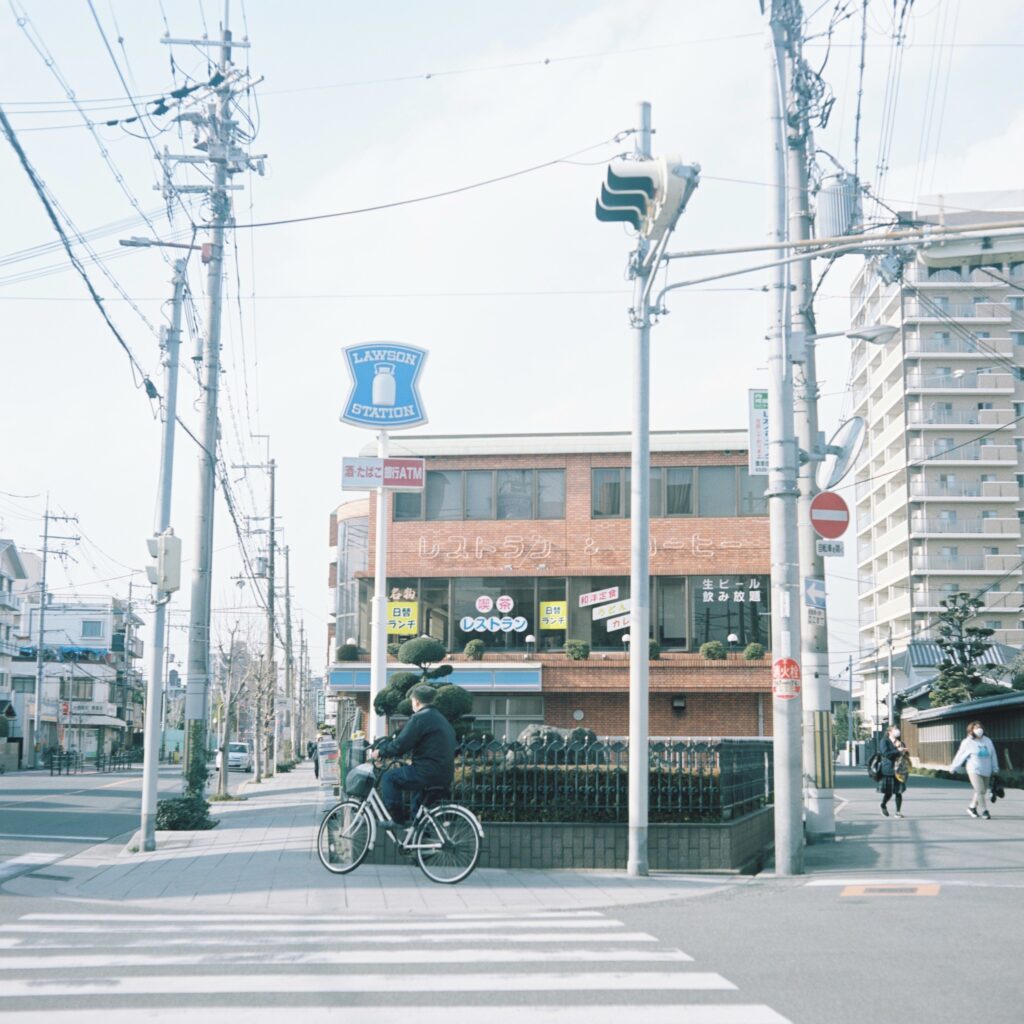
Neighborhood near the apartment
コロナ禍で一日中家で過ごしていたので、友達を作ることは簡単ではありませんでした。ディニは出産した病院や近所のスーパーで出会った日本に住む2人のインドネシアの女性と親しくなりました。彼女たちとはSNSを使って、日本での子育てのノウハウを共有するなど、よく連絡を取り合っています。
It was not easy to make friends during the pandemic while she stayed at home all the time. Dini befriended two Indonesian ladies living in Japan, whom she met at the same hospital she gave birth in and their neighborhood supermarket. They often share and discuss the know-how of parenting in Japan via social media.
日本語がまだあまり話せないことを申し訳なく思うことがあるとディニは言います。「病院や小児科に行ったとき、差別は感じないけれど、私が英語しか話せないことを申し訳なく思うことがある。私はもっとお医者さんや看護師さんと話したいんです。」と。彼女は人種や国を問わず、支えてくれる人々にとても感謝しています。そして、息子が幼稚園に通う歳になったら、また日本語の勉強を始めようと思っています。
Dini sometimes feels bad that she is not able to communicate in Japanese yet. “I don’t feel any discrimination when visiting hospitals or child clinics. I feel bad that I can only speak English. I really want to talk more with the doctor and nurse,” Dini said. She felt grateful for all the help she received even with her Japanese ability is still limited. Once her son is old enough to enter kindergarten, she is thinking to continue learning Japanese.
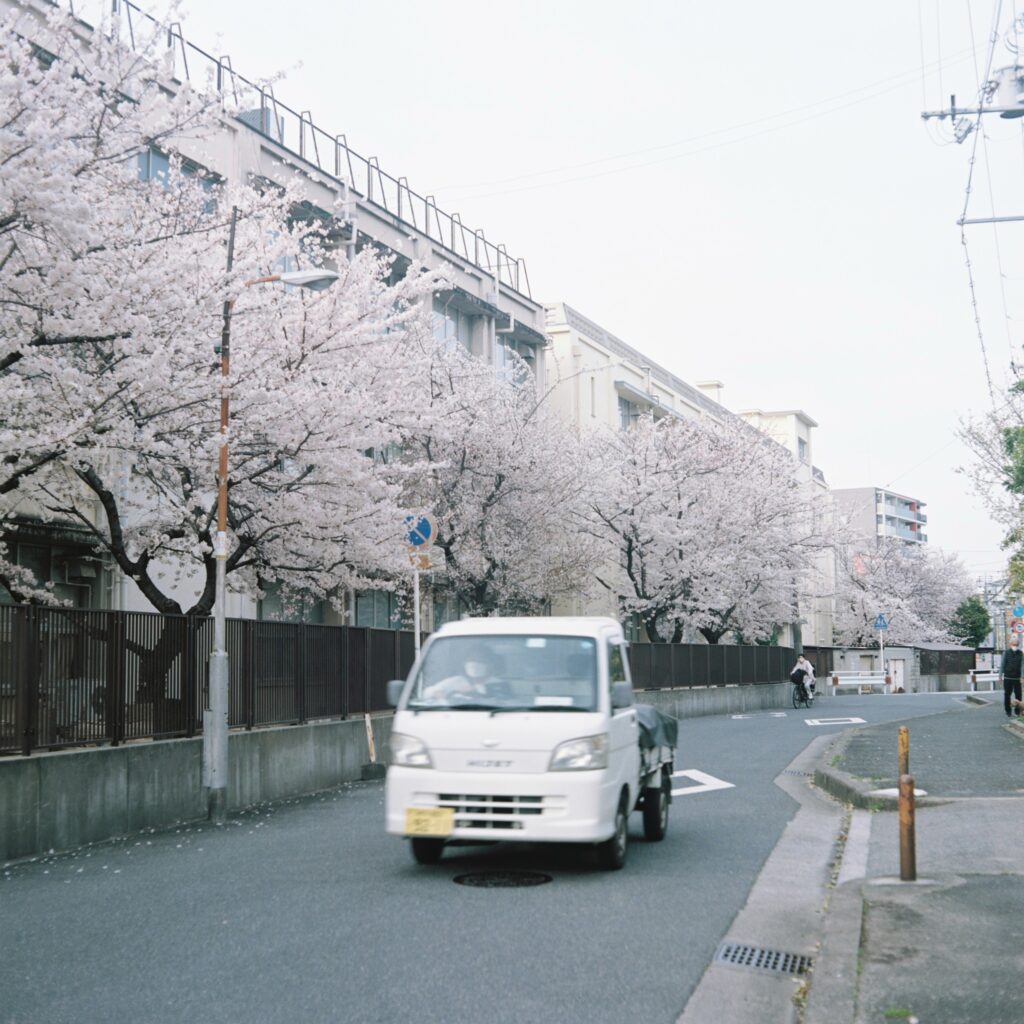
Line of sakura trees inside a school area
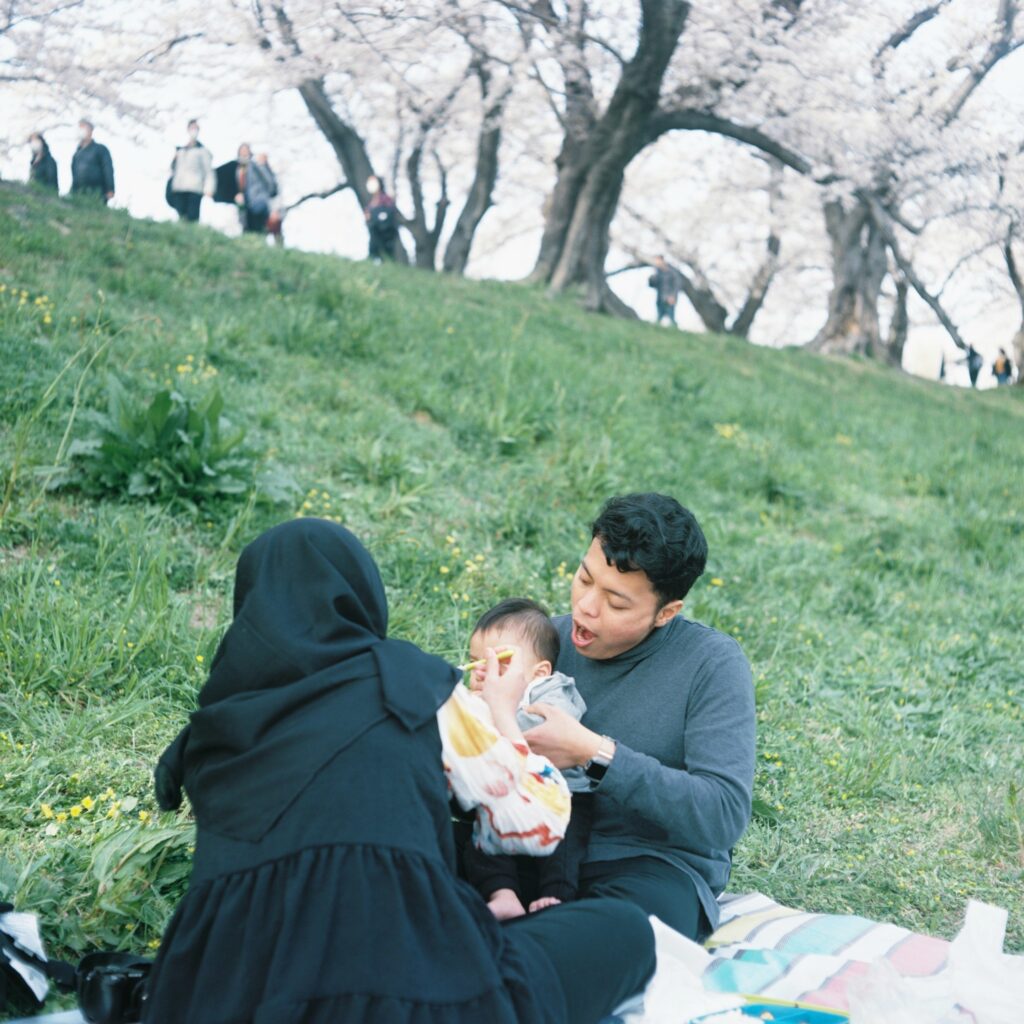
Enjoying Japanese culture, Hanami
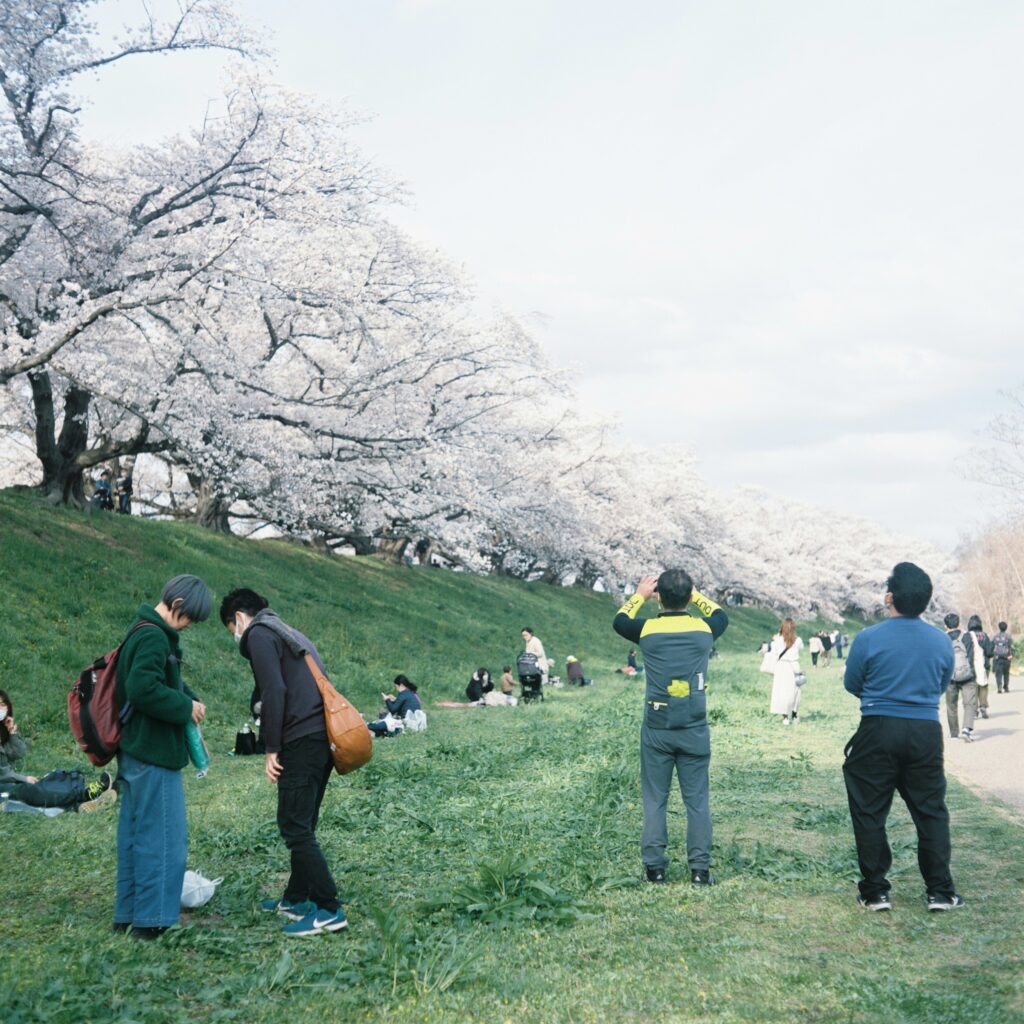
Hanami in Sewaritei, Kyoto
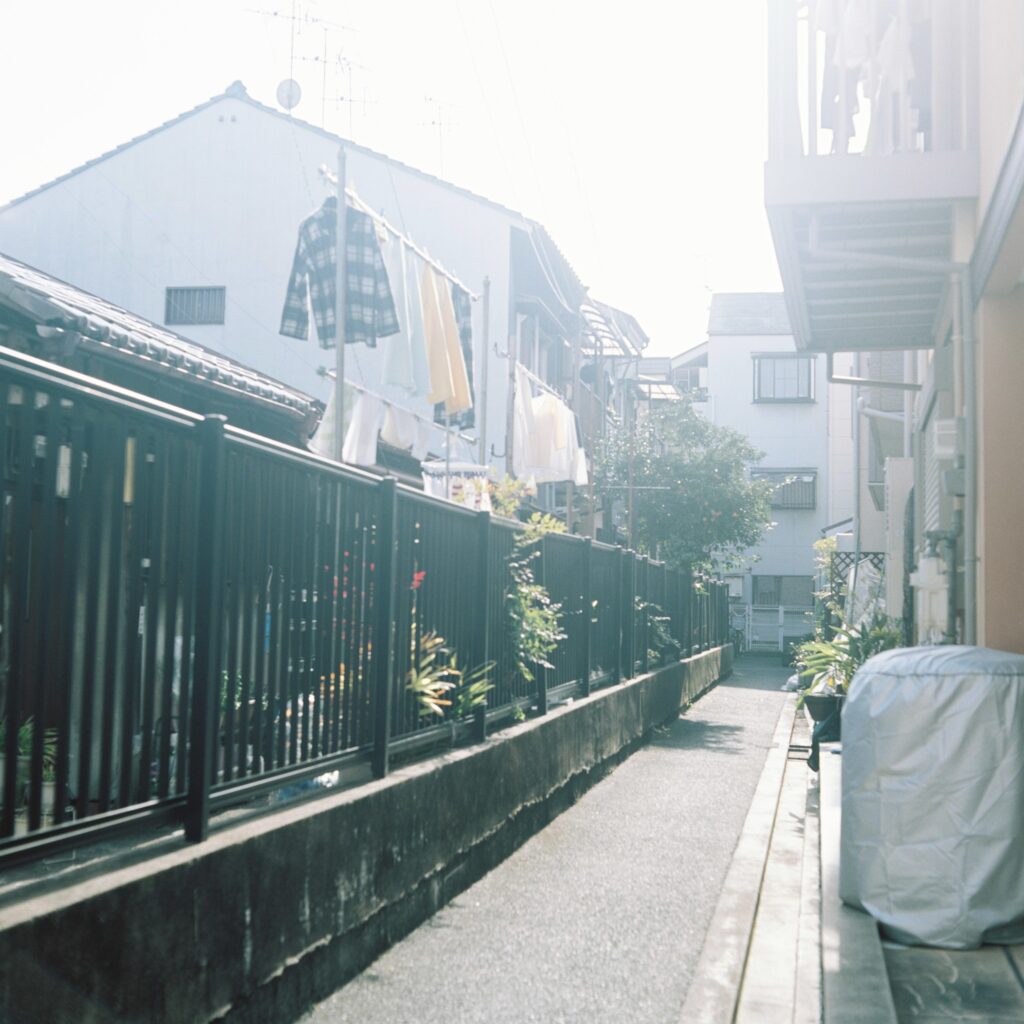
A sunny day in the neighborhood
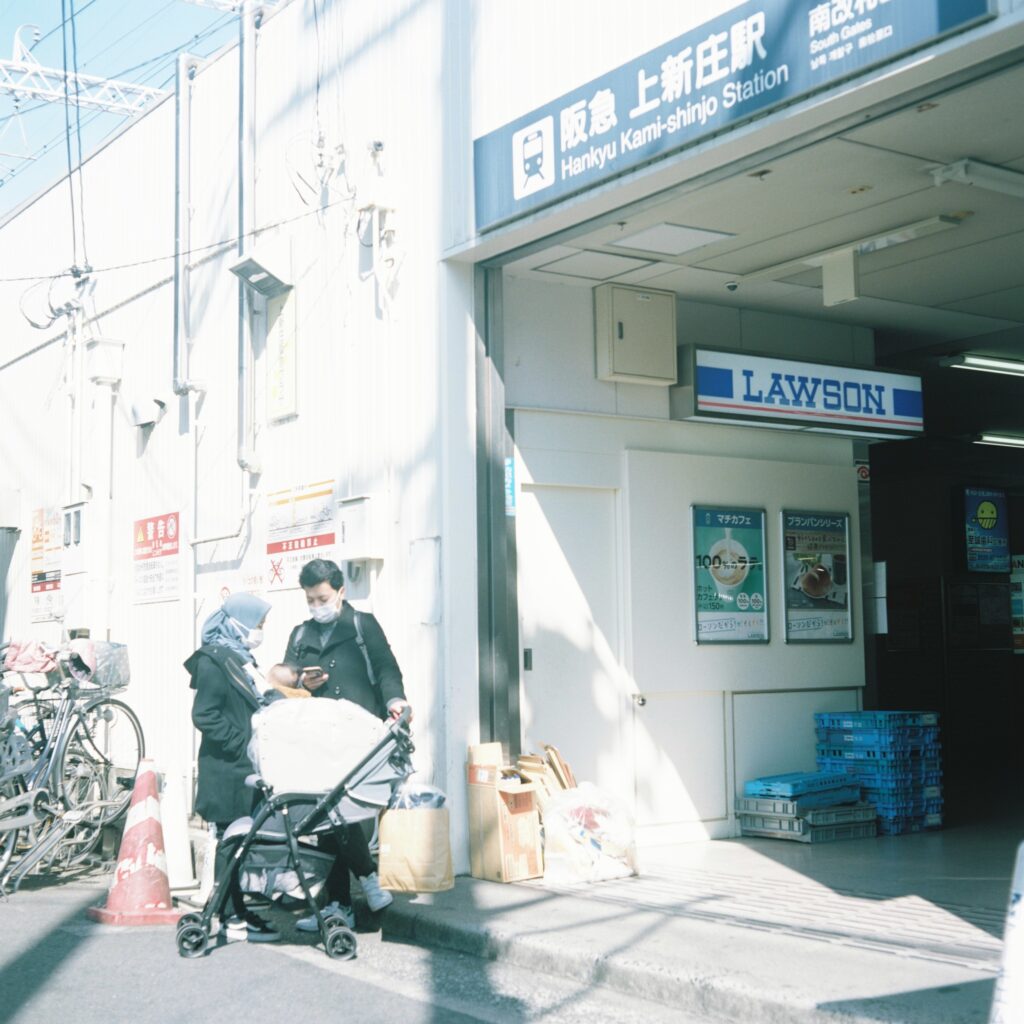
Wicak and his family waiting to meet their friend
インドネシア人のムスリム(イスラム教徒)はヒジャブを身に着けているので、ディニを見ればムスリムだとすぐにわかります。同じように、ディニが他のムスリムを見つけるのも難しくありません。ディニはムスリムとして生活するコツをひとつ教えてくれました。「ヒジャブをまとった人がレストランで食事をしていたら、そこではハラールフードが食べられるということです。」日本でハラールフードを食べるには、それなりの努力が必要です。けれども、日本に住むと決めたからには、彼らにはそれなりの覚悟があります。大阪では一部のスーパーやモスクでハラールフードが手に入ります。最近では、ハラールフードを提供するレストランも着実に増えています。
As an Indonesian Muslim wearing a hijab, it is easy to notice Dini. Likewise, it is also easy to notice other Muslims. Dini shared one of their Muslim life hacks: “If someone with a hijab eating in a restaurant, it means we can find halal food there”. It requires more effort to eat halal food in Japan. But, as it was their decision to live in Japan in the first place, they are prepared. In Osaka, halal food can be found in some supermarkets and mosques. Recently, the number of restaurants providing halal food has steadily increased.
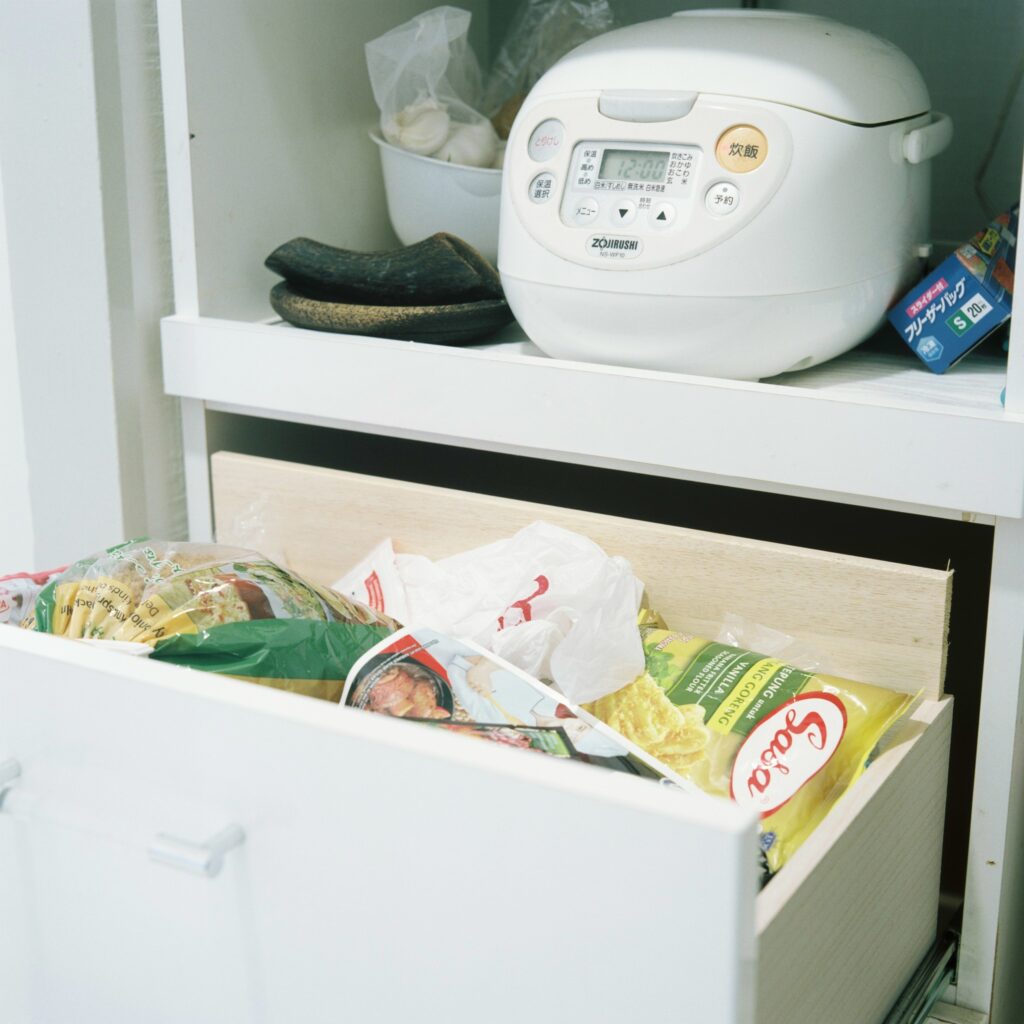
Food stock and utensils of an Indonesian family in Japan
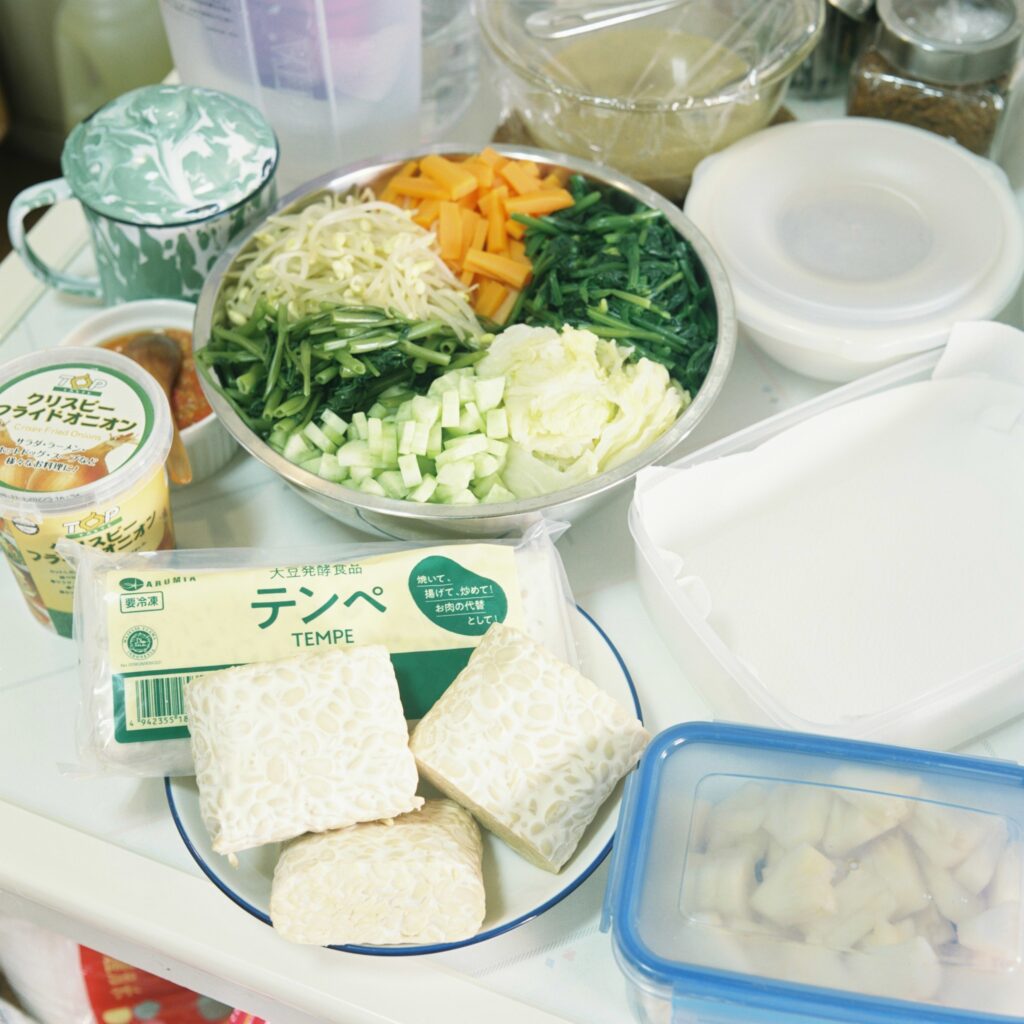
Reproduced traditional Indonesian dish in Japan
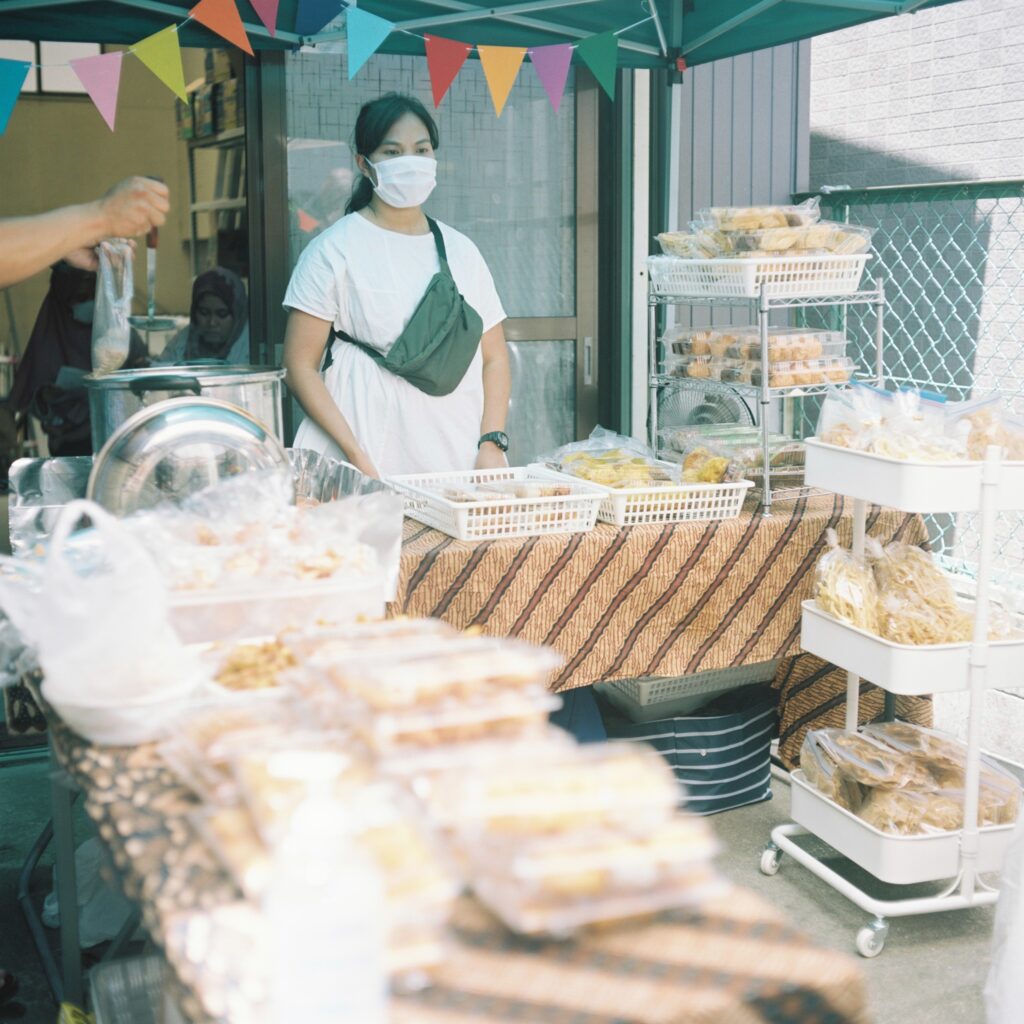
A small food bazaar organized by the local Indonesian community
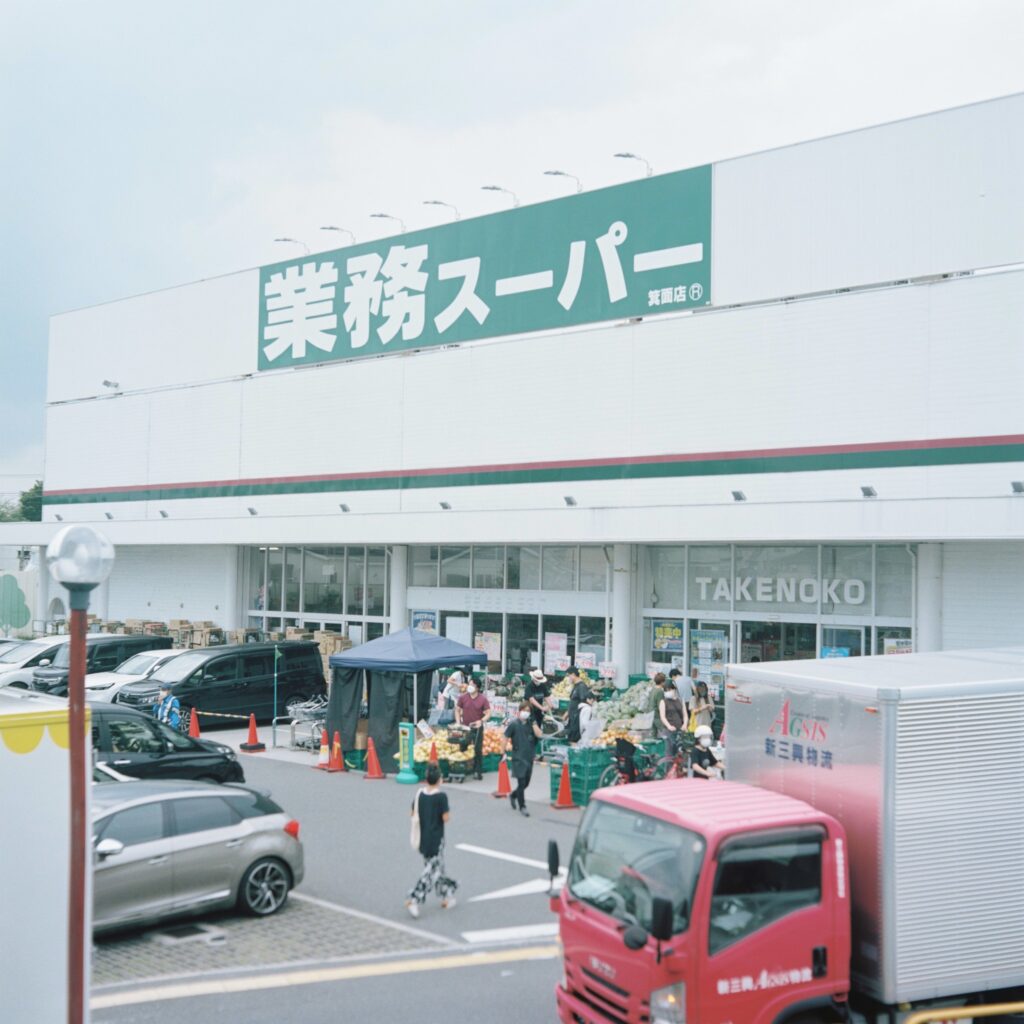
The local supermarket that sells imported food from Indonesia